Interview - Geostorm : Let's talk with Lorne Balfe
By Mulder, Los Angeles, 20 october 2017
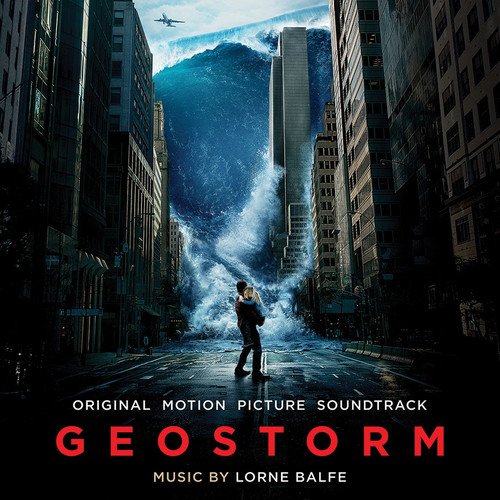
Q: You have composed a lot of excellent movie score as Terminator Genisys (2015), The Lego Batman Movie (2017) and recently also for the sci-fi short film Rakka. What can you tell us about the collaboration with Neill Blomkamp?
Lorne Balfe: I’ve been working with Neill Blomkamp for maybe two years and I started out with about fifteen to twenty short movies with him, and of course I’ve always known of his work and I love it. I started working with him and I think he has heard my music from the movie Michael Bay’s 13 Hours. So I started working with Neill. Im still working with Neill, I literally finished another short film he just made called Adam. He is a very unique filmmaker and also the way he is making content is fascinating because I think some people believe that the only way to make film is in a studio. I think that he’s showing you don’t need a studio to make a film. People do want to watch content that’s not necessarily two hours long. He’s making films visually and story wise the standard of a feature film but in a short and easily accessible timeline basically.
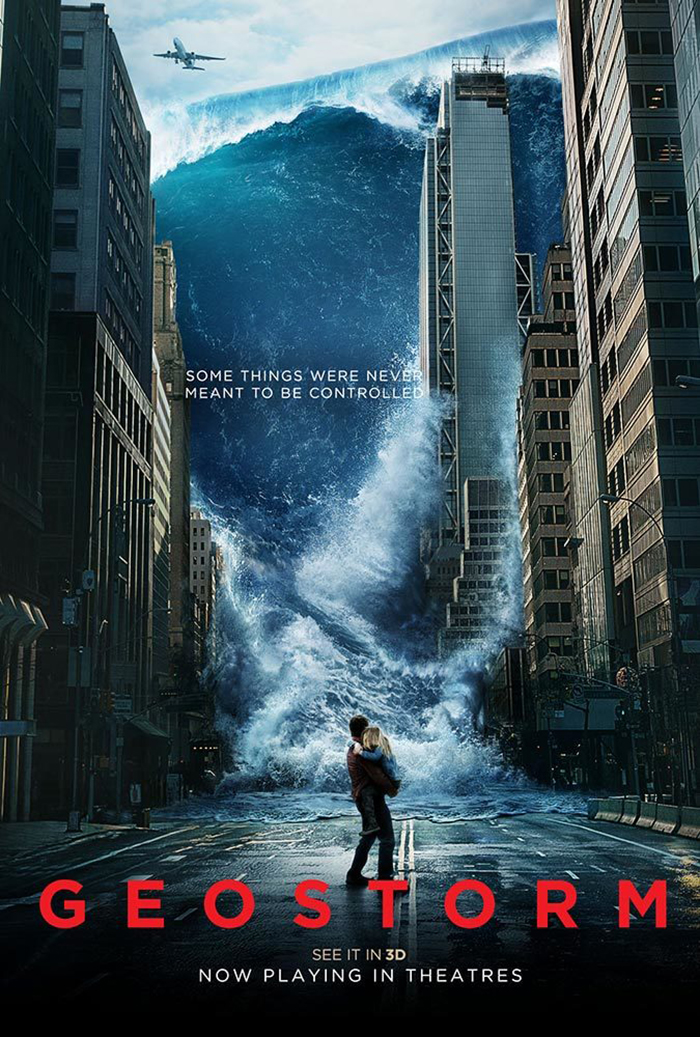
Q: When you're writing a score alone or work with another composer on some projects what's the hardest thing for you?
Lorne Balfe: Waking up the morning. That’s really the only obstacle. Everything else is simply a challenge. Whether you’re working on a game or work for a feature film, it doesn’t really matter; they all have challenges. I think that people sometimes look at it like an obstacle, but I think then it becomes a bit negative. I think you get yourself into a rut, you then start panicking about creativity and deadlines. I think that can create excess pressure. I think creativity doesn't need stress. Some of the best pieces of art and best pieces of music have been written without necessary pressure. I could contradict myself because I had to write a night before, sometimes it can push your boundaries. It’s like the concept of writer’s block, I’ve probably had it but I try not think about it. Because as soon as I felt it an obstacle or a hindrance it effects the whole thing. So I’ll stick with waking up the morning.
Q: Do you go in with a different outlook for video game versus when you do movies?
Lorne Balfe: Yes. I think in the last couple months, I have done movies, video games, commercials, and there is no difference. It serves the same objective and whether its thirty seconds or for a TV show or one hour an episode. That’s about 50 minutes of music each episode, that is just as intimidating as a thirty second commercial, to me at least. You’ve got to try to tell a story musically in that medium and I think that is why also with Neill Blomkamp projects even though they’re short, to me the hardest thing is coming up with the concept, the musical identity, or the theme for a character. Once you’ve got that then you can move forward and that what the challenge is to get that idea original, that musical spark. Once you’ve got that then you can get going, I never see a difference between films or video games.
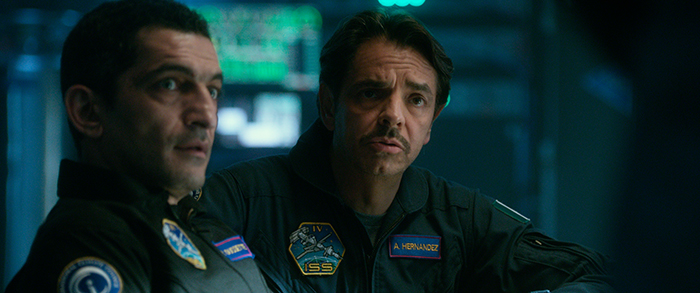
Q: For Geostorm, you have made an important focus on the opening scene. How did you approach that scene and which instruments have you used and why?
Lorne Balfe: I think when you watch the beginning of Geostorm, the biggest privilege that I had was when I was a child I always use to get excited [for the opening scene]. When you sit and notice watching the opening of a film you see those credits come up and you see Jerry Bruckheimer, you know that you are gonna be in for a massive ride of movie. I don’t know about you or your taste of movies, but I was brought up on Con Air, The Rock, and The Pirates of the Caribbean, all these movies were made by this absolute legend. I would sit there smiling like a cat in a for the first ten minutes, just for that opening. So you then have to get over that feeling. But the whole point was that opening sequence your sitting there was really simply to introduce the audience to the movie and story wise but musically and thematically, you want to invite the viewer into the actual next hour and fifty minutes of what they are about to witness. It always a hard one. A queue like that you always end up come back to this queue even when I have finished the end of the movie. Because the score had evolved and it had changed, so it always something that you have to go back at. Sometime when your creating scores the general tone changes, you may change the melody, you may change the whole the size of it. But due to the nature of the film and the sheer vastness of the subject matter. I think after a while we start to figure out the real color of the musical score and then make that opening more representative of it.
Q: What was your best memory of working on a score?
Lorne Balfe: Well it’s gonna be purely selfish, it’s gonna be thing that I was working on Home the Dreamwork's animation. I think it was being able to, I had recently become a father so I was able to have great fun creating the music to use the recording of my son’s heartbeat putting that into it. There are personal great little memories like that I think every movie brings good and bad memories. But it is all about constantly learning, every single movie you work on I find that they are always leaning something new things, you meet new directors and you start seeing people’s different views. I’ve been very fortunate in working with Ron Howard and people like Michael Bay. Have a real privilege as a work profession to learn from these people.
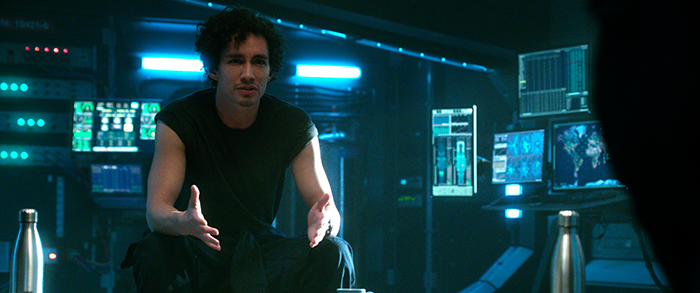
Q: When you doing a movie that has CGI. Do you go about the music differently?
Lorne Balfe: No, there is no difference. The work process might be different because sometimes what you are looking at isn’t necessarily finished. You just have to have a good imagination. Working on animation film is harder than if you worked on a live action film, because it’s with live action you’re at least still awaiting the visual effect. You standing have a rough understanding if there is a road block or a monster standing there. You can see the general direction of what’s going on. Animation is very hard sometimes because you’re literally looking at basic black and white drawing and you don’t get to fully understand the depth and complexity of the scene. So you really have to rely on dialogues with your director who can walk you through it and give you the inspiration to write. The writing process is the all same its just you have start using slightly more imagination.
Q: What can you tell us about your collaboration on Geostorm with Dean Devlin?
Lorne Balfe: it was wonderful. I think that with any movie your director can become your best friend and best advisor. You rely on the director, your producer and editor. Its always a very big team on these movies. There is no just one singular person that gets you to the finish line. So you really do have to work as a team. Jerry has a very big input into the movie and that brings in a lot of knowledge too. You work a lot as a small unit.
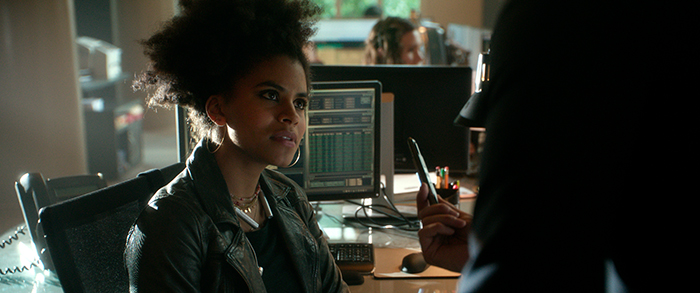
Q: So when you writing the music for this, did you run into any problems or thing you that you have couldn’t solve. Like did you have to change certain things to accommodate what was going on?
Lorne Balfe: constantly, that’s one of the reasons film making is not as simple as you see all the time. Twenty, thirty years ago you use to debate about changing a scene or storyline for months. Now, you can change it at the snap off a finger. Now you have to really have to be able to produce and write music much faster than you use to because you can change a feeling of a film very quickly buy the way it’s edited. You can go and do reshoots and the reshoots can change the tone again. I have seen some film that whole characters have been removed. In animation they can change the actual character that you see on screen. So a lot can happen and a lot can change the music, and the feel. But that’s the natural of process of making music for film.
Q: Any advice to young film composers, especially one who want to compose for film?
Lorne Balfe: work hard. There is no real clear path to do it. There is none obviously way to do it. It simply comes down to working hard. And being a fan of film. That’s why I got into it. I love movies. I love that escapism of sitting in a cinema and being taken to another planet, or another country. Its escapism that I think you have to have a passion for movies if you want to get into it. So the only advice I can think of is exactly how I look at and use to look at it. Is simply to work hard. It a passion. something you want to live and breathe and do constantly.
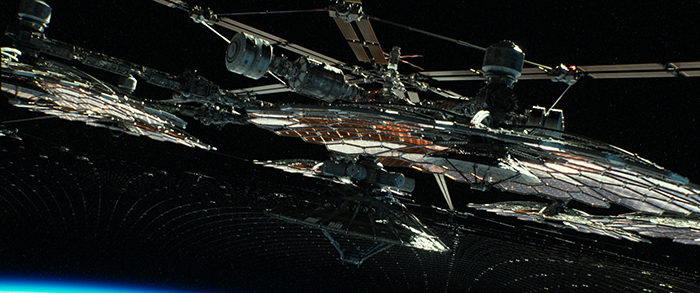
Q: There is other things that you would like to say
Lorne Balfe: I hope you enjoy GeoStorm!
Interview and Transcription: Adrian Jones (adj85)
Photos: Copyright Warner Bros
We sincerely thank for answering our questions Lorn Balfe
An huge thanks to Ray Costa and Jenay for helping us to have this great interview

